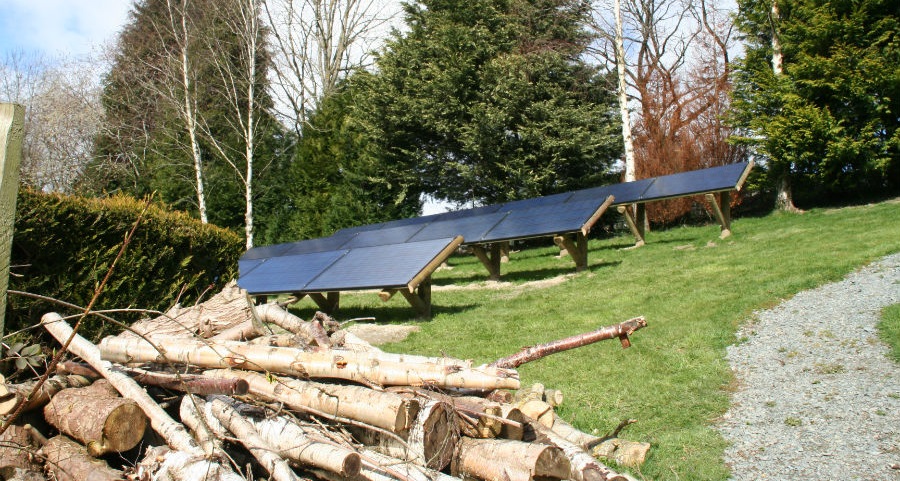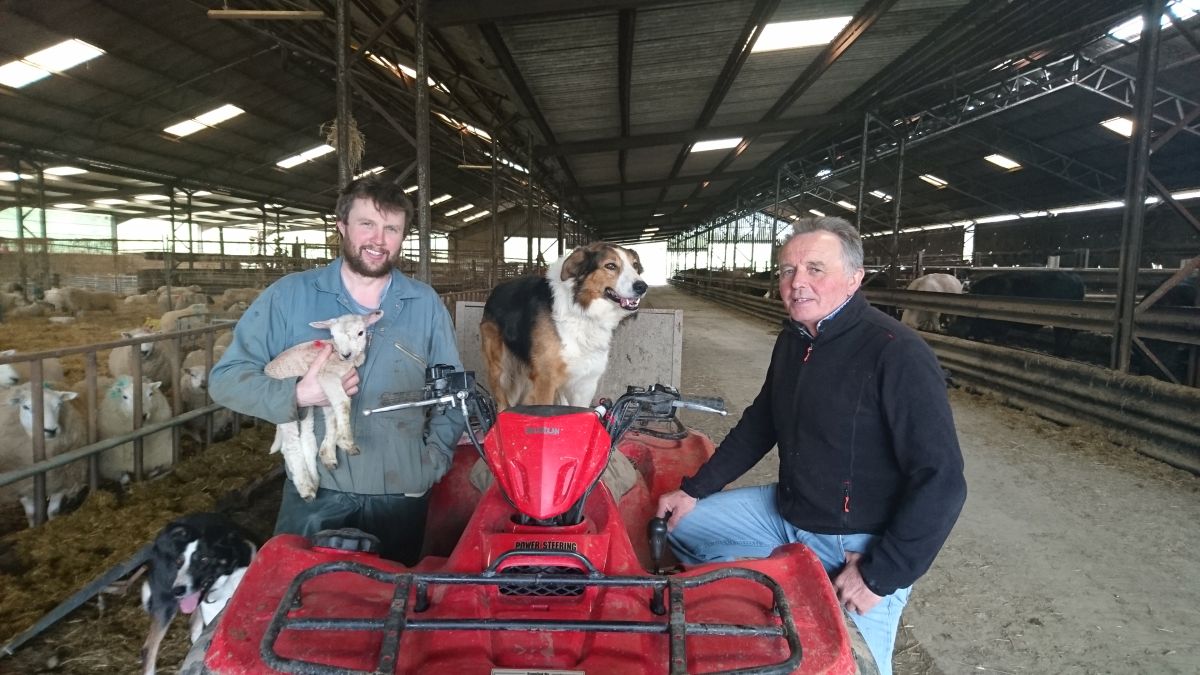
A beef and sheep farming family from Pembrokeshire have highlighted the benefits of solar power to their business but stressed the importance of improvement to infrastructure to further develop the sector.
Wyn and Glenda Jones, of Pantyderi and Trefach farms at Blaenffos, together with their son Eurig rear beef and sheep plus arable acreage for home consumption on both holdings which run to 1,000 acres in total.
Across the two businesses the family farm 70 suckler cows, 400 store cattle, and 2,000 breeding ewes. Since 1985, the family also offer self-catering cottages all year round.
In 2012 the Jones family decided to diversify into renewable energy and installed 104 kw of solar panels.
There are now two installations of 50 kw at Pantyderi and a 4 kw installation at Trefach for domestic use.
Renewable energy schemes produce more than 20% of the UK’s electricity, and EU targets mean that this is likely to increase to 30% by 2020.
The first 50 kw solar installation was put up in 2012 at Pantyderi and was followed by an additional 50 kw the following year.
The opportunity to diversify into renewable energy came as three-phase electricity was already on the farm with access to the main line.

And when Western Power decided to upgrade the existing transformer on the farm in 2012, which had been there since 1945, it was too good a chance to miss.
Wyn paid an extra £3000 towards putting a bigger transformer up, which then paved the way for the second installation in 2013.
The payback time for the initial investment is 6 to 7 years and the installation is index linked for 20 years.
The Feed-in Tariff (FiT), from which the business benefits, is designed to support small scale renewable installations up to 5MW.
Through FiTs, generators like the Jones family, are paid a tariff for every unit of electricity they produce. Any electricity not used on site can then be sold back into the Grid.
'Totally self-sufficient'
"We make a saving of about £5000 a year between the two units, with each of them generating approximately £7000 worth of electricity a year.
"The surplus energy we don’t use on the farm is exported back to the national grid. We receive about 14.5 pence for generating each unit and receive 4.5 pence per unit for the surplus we feed back into the grid," explains Wyn.
"This means that we are totally self-sufficient in our electric use on the farm and all of this is produced by the sun.
"Even though we don’t get as much sunshine here as some other countries, it was well worth the investment," he added.
However, when wanting to expand the current installation of solar cells, as there was plenty of room on the farm buildings, the family hit a brick wall.
Following some enquiries they were told that there was no more capacity in the grid as the infrastructure was not there to support any extra energy produced.
'A way for farmers to increase income'
"We were really keen to expand our solar cell installation but because the infrastructure could not cope with any more energy being fed into the grid it was impossible.
"The country has a commitment to reduce its carbon footprint and its reliance on fossil fuels, so it was very disappointing for us.
"Renewable energy production is also another way for us farmers to increase our income stream and diversify our businesses.
"We can’t just rely on the price we get paid for our produce anymore, so anything we can do to support ourselves needs to be supported by government and as far as renewables are concerned also the energy companies," added Wyn.
He added that many more farm businesses would be able to make an investment into renewable energy as a viable form of extra income that was index linked, if only the right support was out there for them.
The Farmers' Union of Wales says it "fully supports the development of appropriate on-farm renewable energy sources".
The Union believes Wales has only "scratched the surface" in terms of the contribution Welsh farms can make to green energy production.
'Just 10 per cent in Wales'
"Despite Wales’ being perfectly suited for some forms of renewable energy generation, the percentage of electricity generated in Wales from renewable stands at just 10 percent – 5 percent lower than the UK average, and the lowest of all the UK devolved regions," said FUW Land Use Policy Officer Bernard Griffiths.
"The decision in 2015 by the UK Government’s Department for Energy and Climate Change to suddenly and drastically reduce support for renewables not only compromises our ability to help mitigate climate change, but has also led directly to farmers and others losing significant sums already invested in unfinished projects," added Mr Griffiths.
In light of this the FUW called on Welsh Government to carefully consider the outcome of the Welsh Assembly’s Environment and Sustainability Committee’s Smarter Energy Future for Wales inquiry and to seek alternative and innovative ways in which funding can be provided in order to develop on-farm energy production.
In addition, there has to be a stronger commitment from energy companies to invest in improving infrastructure to allow those farms not currently connected to also access the renewable energy market.
The Union further asks of the Welsh Government to identify those barriers to on-farm energy production which fall within its remit and seek to reduce bureaucratic burdens which prevent or add to the financial and time burdens which prevent developments.
Mr Griffiths added that it is vital for the Welsh Government to work with Ofgem and the UK Government to ensure the costs of connection to the National Grid by electricity companies are fair and proportionate.
Mr Griffiths also hopes the government encourages and facilitates the use of wood and other carbon-neutral sources of energy while ensuring food production is not compromised.
